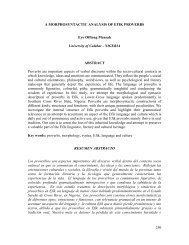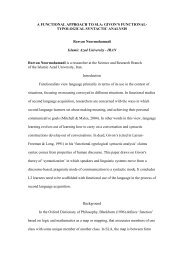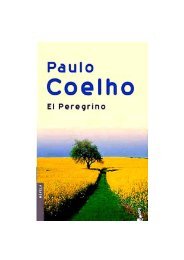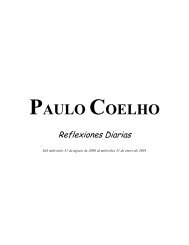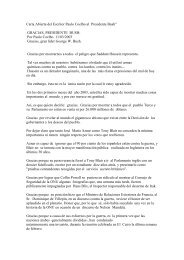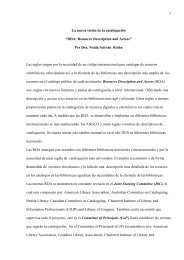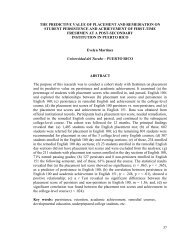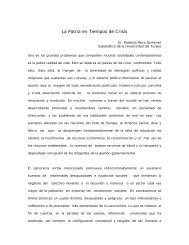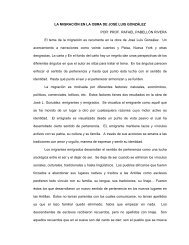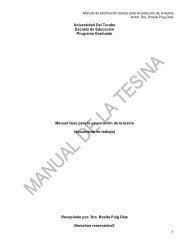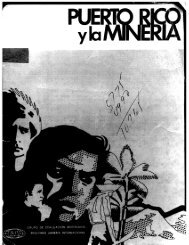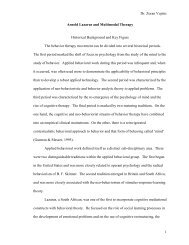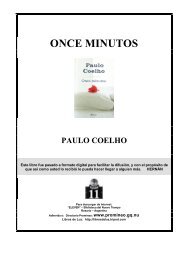Jennet Rodriguez Betancourt
Jennet Rodriguez Betancourt
Jennet Rodriguez Betancourt
Create successful ePaper yourself
Turn your PDF publications into a flip-book with our unique Google optimized e-Paper software.
underprivileged circumstances. 156). At this point , Alonso masters the role of a literary<br />
critic incorporating and examining verses from different poems (La Vida, Insomnio, Mis<br />
Memorias) in which the poet illustrates his enormous talent while vibrantly describing the<br />
island’s beauty. He evidences that if Santiago Vidarte was able to create such<br />
exceptional work under such appalling conditions; what would occur if the circumstances<br />
were otherwise. He ends the scene describing the death of this gifted twenty-one year old<br />
poet, who in the arms of friends repeatedly rambled “…los nombres de sus padres y el de<br />
su patria, anadiendo siempre: es preciso estudiar…” (Alonso 80). Although Alonso is<br />
frustrated with education in Puerto Rico, he does not want to disturb colonial authority<br />
and he continuously inserts writings that carry concealed transcripts. Most importantly,<br />
“El fue nuestro primer costumbrista y el primer escritor que se ocupo críticamente de la<br />
obra de un poeta puertorriqueño” (Martínez Masdeu 156).<br />
Manuel A. Alonso published El Gibaro as a collection of vignettes masterfully<br />
weaving stories and articulating customs and traditions that should not be forgotten. Yet<br />
between the lines, this cultural mannerist depicted the language, customs, and traditions<br />
of this romanticized peasant to shield his own discourse. A discourse that did not want<br />
Puerto Rico to be independent from Spain, but that pleaded for justice, equality, and<br />
respect from the imperial power.<br />
From the very beginning the title in El gíbaro, the protagonist is the inoffensive<br />
rural peasant who must be educated and cultivated in order for Puerto Rico to move<br />
forward. Immediately it is this country-folk figure who takes center stage and not the<br />
already mistrusted writer, Alonso. While illustrating vivid snapshots of the clothing,<br />
music, dance, festivities, and daily life of this simple jíbaro, an identity in formation<br />
19



